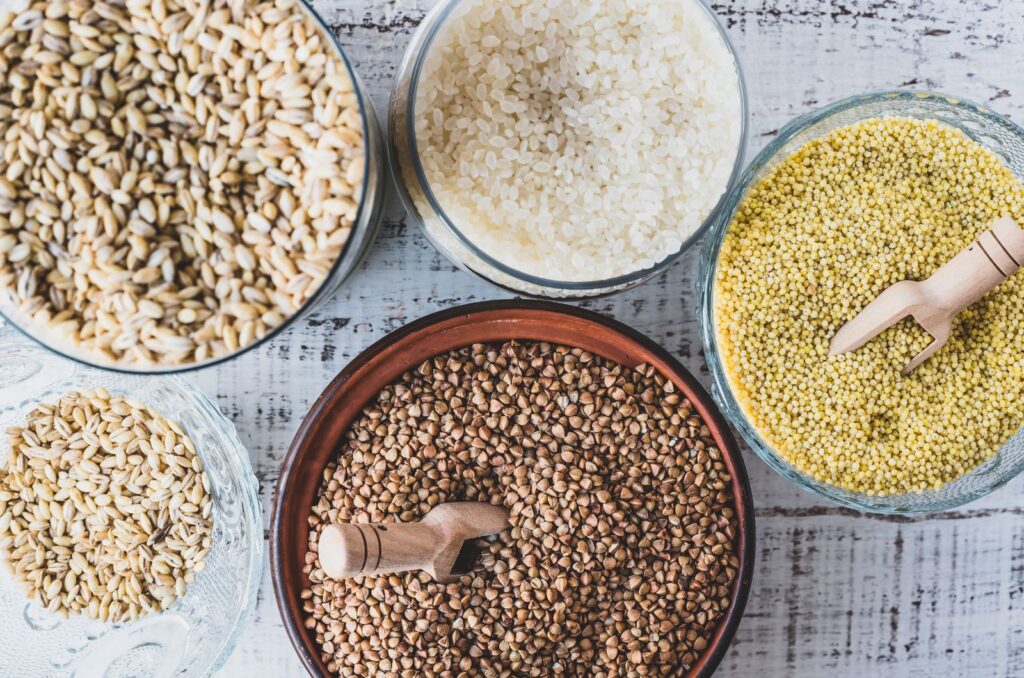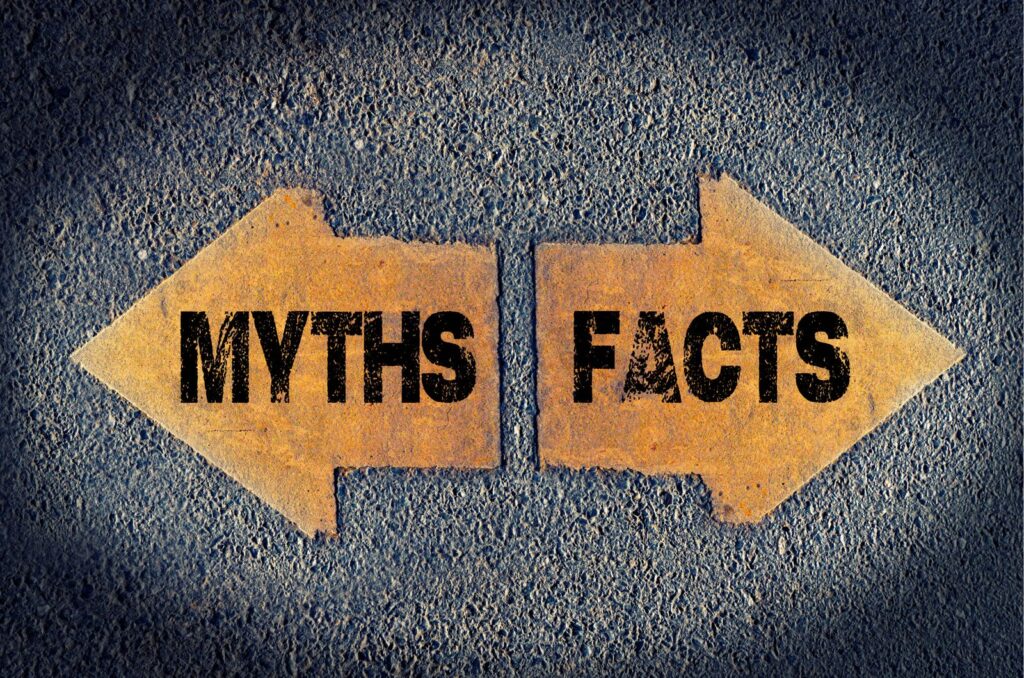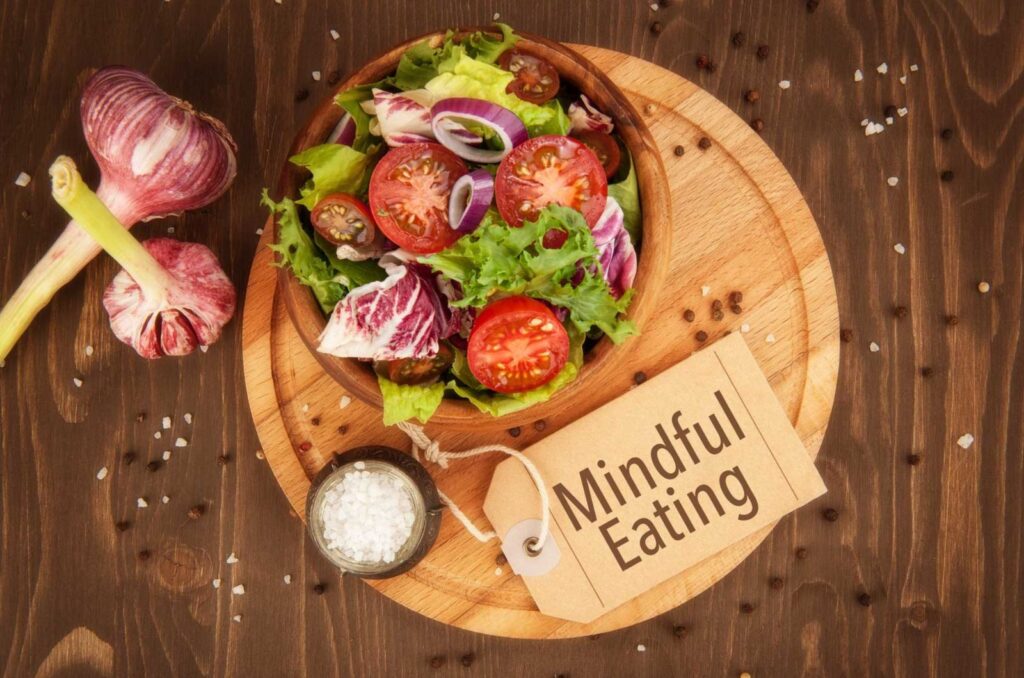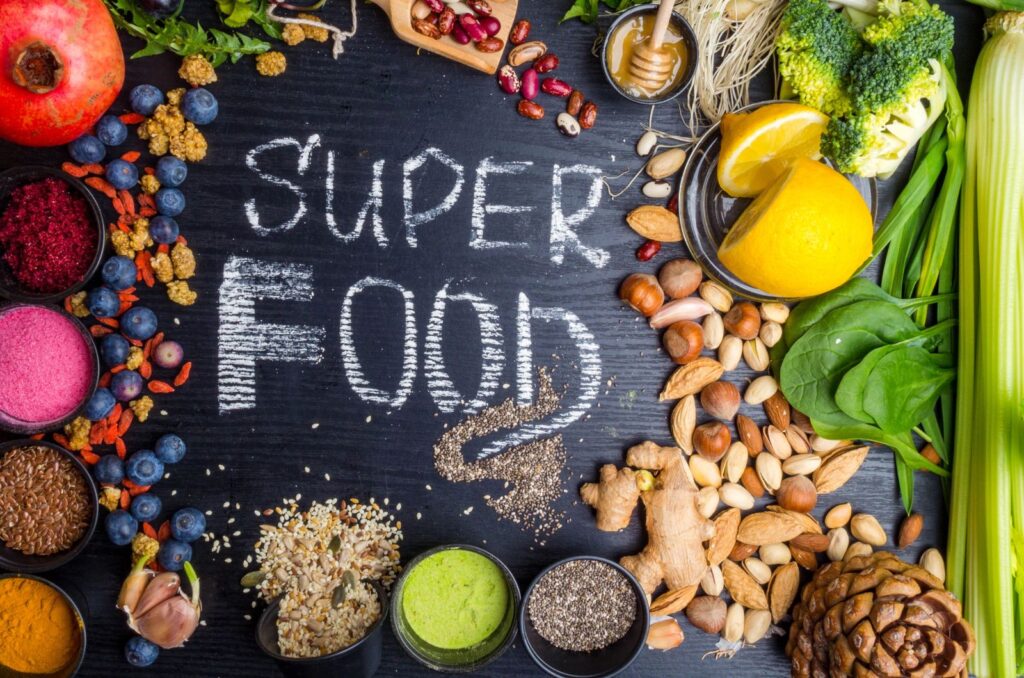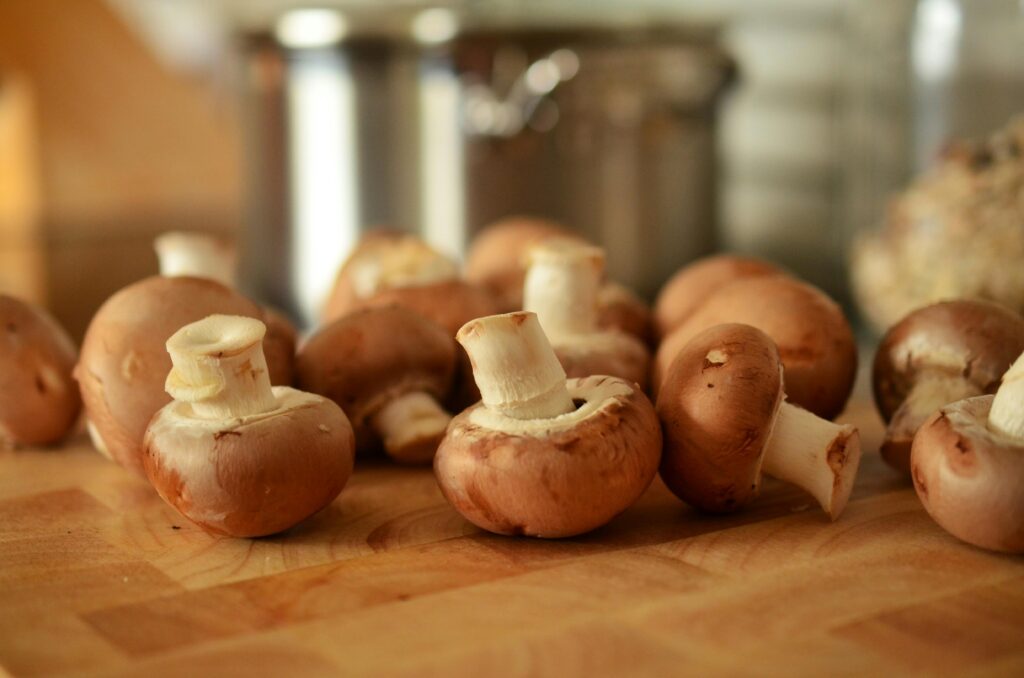Mushrooms are not only delicious additions to meals but also pack a punch in terms of nutritional value. From boosting immune health to providing a meaty texture in vegetarian dishes, mushrooms offer a range of benefits that make them a versatile ingredient in any kitchen. Let’s delve into the benefits of mushrooms and explore some creative ways to add them to your meals: Benefits of Mushrooms: Nutrient-Rich: Mushrooms are low in calories but rich in essential nutrients like vitamins (such as B vitamins, vitamin D, and vitamin C), minerals (such as potassium, selenium, and copper), and antioxidants. They also contain fibre and protein, making them a valuable addition to any diet. Immune Support: Certain mushrooms, such as shiitake and maitake, contain compounds like beta-glucans and polysaccharides that have been shown to boost immune function and help the body fight off infections and diseases. Rich in Antioxidants: Mushrooms are a rich source of antioxidants, including selenium, ergothioneine, and glutathione, which help protect cells from oxidative damage caused by free radicals and may reduce the risk of chronic diseases. Heart Health: Consuming mushrooms regularly may help promote heart health by lowering cholesterol levels, reducing inflammation, and improving blood vessel function. The fibre, potassium, and antioxidants found in mushrooms contribute to these beneficial effects. Gut Health: Mushrooms contain prebiotic fibres’ like beta-glucans, which serve as food for beneficial gut bacteria, supporting a healthy balance of gut microbiota and promoting digestive health. Creative Ways to Add Mushrooms to Your Meals: Sautéed Mushrooms: Sauté mushrooms with garlic, herbs, and a splash of olive oil for a flavorful side dish or topping for salads, pasta, or grilled meats. Try a variety of mushrooms like button, cremini, shiitake, or oyster mushrooms for different textures and flavours. Mushroom Stir-Fry: Incorporate mushrooms into stir-fries with an assortment of colorful vegetables, tofu, or chicken. The umami-rich flavour of mushrooms adds depth to stir-fry dishes and pairs well with Asian-inspired sauces and seasonings. Stuffed Mushrooms: Hollow out mushroom caps and fill them with a mixture of breadcrumbs, cheese, herbs, and other fillings of your choice. Bake until golden and bubbly for a delicious appetizer or light meal. Mushroom Risotto: Add sliced mushrooms to classic risotto recipes for a hearty and satisfying dish. The earthy flavor of mushrooms pairs beautifully with creamy risotto rice and aromatic herbs like thyme or rosemary. Mushroom Soup: Blend cooked mushrooms with vegetable or chicken broth, onions, garlic, and herbs to make a comforting and nourishing mushroom soup. Garnish with a drizzle of cream or a sprinkle of fresh parsley for added flavour. Mushroom Tacos or Quesadillas: Sauté mushrooms with onions, peppers, and spices, then use the mixture as a filling for tacos or quesadillas. Top with your favourite toppings like avocado, salsa, and cheese for a satisfying and meatless meal. Mushroom Burger: Make mushroom burgers by grilling or baking portobello mushroom caps and serving them on whole-grain buns with lettuce, tomato, and your favorite condiments. The meaty texture of portobello mushrooms makes them a satisfying alternative to meat patties. Mushroom Pizza: Use sliced mushrooms as a topping for homemade or store-bought pizza. Pair them with other vegetables, cheese, and herbs for a flavourful and nutritious pizza that’s bursting with umami goodness. Incorporating mushrooms into your diet plan can be an excellent way to boost your nutrition and support overall health. Tips to add mushrooms to your meals and stay healthy: Substitute Mushrooms for Meat: Replace some or all of the meat in your favourite recipes with mushrooms to reduce calorie and fat intake while adding flavour and nutrients. Use chopped mushrooms in dishes like burgers, meatloaf, tacos, and pasta sauces for a healthier twist. Start Your Day with Mushrooms: Add mushrooms to your breakfast by including them in omelette, scrambles, frittatas, or breakfast burritos. Sauté mushrooms with onions, peppers, and spinach for a nutritious and filling morning meal. Incorporate Mushrooms into Salads: Slice raw mushrooms and add them to salads for extra texture and flavour. Combine mushrooms with leafy greens, tomatoes, cucumbers, and your favourite salad toppings for a nutritious and refreshing side dish or main course. Blend Mushrooms into Sauces and Soups: Blend cooked mushrooms into sauces, soups, and stews to add depth of flavour and a creamy texture. Use mushroom puree as a base for pasta sauces, gravies, or creamy soups for a rich and satisfying dish. Stuff Mushrooms for Appetizers: Hollow out mushroom caps and fill them with a mixture of breadcrumbs, cheese, herbs, and other ingredients of your choice. Bake or grill stuffed mushrooms until golden and bubbly for a delicious and nutritious appetizer. Make Mushroom Tacos or Quesadillas: Sauté mushrooms with onions, peppers, and spices, then use the mixture as a filling for tacos or quesadillas. Top with avocado, salsa, and cilantro for a tasty and meatless meal option. Grill or Roast Mushrooms for a Side Dish: Grill or roast whole mushrooms or mushroom slices as a flavourful and nutritious side dish. Drizzle mushrooms with olive oil, season with herbs and spices, and cook until tender and caramelized for a delicious addition to any meal. Add Mushrooms to Stir-Fries and Rice Dishes: Incorporate mushrooms into stir-fries, fried rice, or grain bowls for added flavour and nutrients. Sauté mushrooms with vegetables, tofu, or lean protein and serve over rice, quinoa, or noodles for a quick and satisfying meal. Experiment with Different Mushroom Varieties: Explore a variety of mushroom types, including button, cremini, portobello, shiitake, oyster, and enoki mushrooms, to discover new flavours and textures. Each mushroom variety offers its own unique taste and nutritional profile, so don’t be afraid to experiment and get creative in the kitchen. By incorporating mushrooms into your diet plan in creative and delicious ways, you can enjoy the numerous health benefits of this versatile ingredient while adding flavour and variety to your meals. Whether you’re cooking breakfast, lunch, dinner, or snacks, there are plenty of opportunities to include mushrooms and enhance your overall nutrition. Conclusion: Mushrooms offer a host of health benefits and can be incorporated into a




